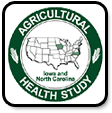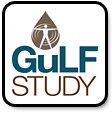Epidemiology Branch
For information on access to data for collaborative research or replication of published work, please visit the study website links below and/or NIEHS EpiShare.
Ongoing Large Cohort Studies
For more information, please visit the study website links provided.

Agricultural Health Study (AHS) explores a wide range of health outcomes among licensed pesticide applicators, their spouses and children potentially exposed to pesticides and other agricultural hazards.

Gulf Long-term Follow-up Study (GuLF Study) is the largest study of the potential health effects associated with an oil spill. With nearly 33,000 participants, it is focused on both short- and long-term health effects related to the 2010 Deepwater Horizon disaster. The GuLF Study has collected information that can be used by individuals, communities and governments to better understand the health consequences of oil spills and plan for future disasters. Due to the unique composition of the cohort, the Study also provides opportunities to investigate the health impacts of neighborhood, environmental, and socioeconomic stressors.

Study of Environment, Lifestyle & Fibroids (SELF) is designed to prospectively identify new cases of uterine fibroids and follow fibroid growth. The goal is to identify risk factors for fibroid development with the aims of identifying factors that could prevent or delay onset and developing strategies for less invasive interventions.

The Sister Study is a nationwide prospective cohort study of 50,000 women whose sister had breast cancer but who themselves were breast cancer-free at enrollment. The study explores environmental, lifestyle and genetic risk factors for breast cancer and other diseases, with a focus on exposures across the lifespan and an eye toward identifying potentially preventable exposures.
Additional Ongoing and Archived Study Resources
For more information, visit NIEHS EpiShare.


